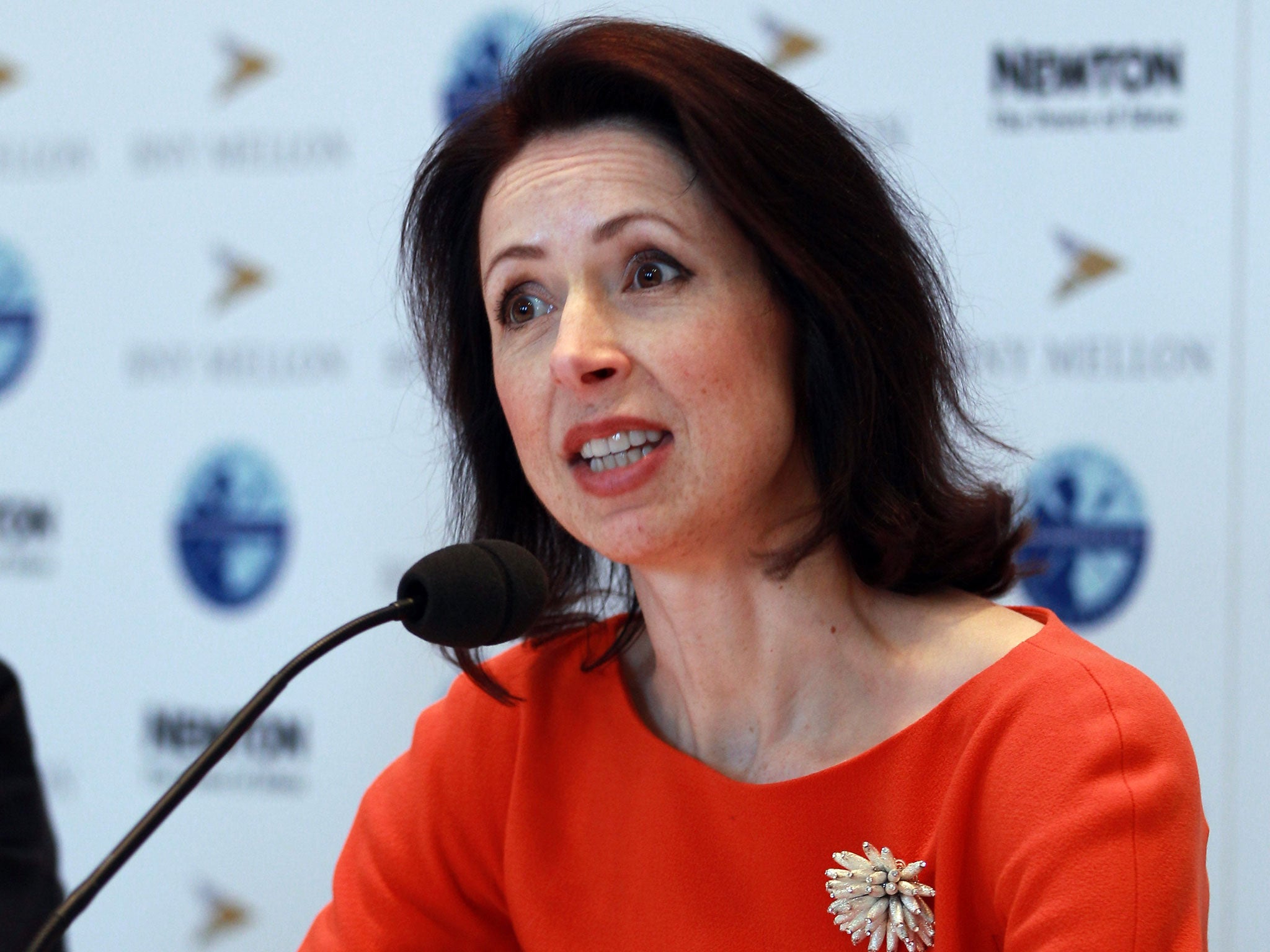The Last Word: FA can learn from Morrissey that action beats talking
Football still has much to learn; rowing could offer a few tips

Sport is very good at setting up task forces and commissions. On the evidence of the Football Association in recent weeks, sport is also very bad at it.
There is a lot of discussion about change punctuated by occasional outbreaks of action and even these are often misdirected or happen after the event (because people spent so long talking about it).
So you can imagine how refreshing it was to meet someone this week who breaks the mould: a person who does something first, then talks about it. The notable detail is, however, that Helena Morrissey is not from sport. She is a businesswoman.
As chief executive of Newton Investment Management, which manages assets worth £60bn, she is a star of the City and well known for founding The 30 Per Cent Club, a group committed to redressing gender imbalance in the boardroom.
With that pedigree perhaps it is not surprising that she is also behind correcting one of the oldest and most glaring inequalities in British sport: the invisibility of women in the Boat Race.
She describes it as a belief in positive thinking, verging on a naïvety born of being an outsider, which made her ask the rowing establishment why in the 21st century the women's boat race did not have parity with the men's.
Why did they race not only on a different day but on a different course? Why did the male crews from Oxford and Cambridge get all the funding and the global spotlight on The Tideway in London while their female counterparts were hidden away in Henley without a full-time coach and no access even to a gym?
As Anna Watkins, who won gold at the London Olympics with Katherine Grainger in the double sculls but didn't row for Cambridge because of the £2,000 cost of participation, observed: "Historically it was quite easy to assume that women didn't row."
The vice-chancellors of England's leading universities agreed that it was anachronistic but suggested the men would be none too happy if the women started sharing facilities and river access. Besides, it had been ever thus.
These were not satisfactory answers. So, when the men's race lost its title sponsor, Morrissey saw an opportunity to convince BNY Mellon, Newton's parent company, to step into the breach. Newton already sponsored the women's race. But the price of the additional financial support – an estimated £1m a year – was reform.
The result is that in 2015 the women's crews will line up at Putney Bridge to complete the same 4.2-mile course on the same afternoon as the men. Job done. No committees, no working groups, no endless debate. Morrissey's approach was just to get on with it.
"It's chicken and egg. It has to be all there before people put the money in but someone has to take the plunge," she said.
"I do hope it will inspire other companies to sponsor women's sport. Women's football might not have the ticket sales but if you wait for that it'll never happen."
If only more people in sport thought like that. Ironically, given what has just been said about task forces, Morrissey is on a commission created by Maria Miller, the culture secretary, with the aim of getting more women on the boards of the 46 publicly-funded sports governing bodies.
It bears all the hallmarks of a talking-shop – it has met just once since it was founded in July, although another meeting is scheduled before Christmas.
Morrissey, who has six daughters and three sons, acknowledges my cynicism. "Just talking is not going to change anything. It has to be backed up by action," she said.
She would like a more ambitious target than raising the proportion of female board members from 22 per cent to 25 per cent by 2017.
"I'm not comfortable with that," she said. "That's why it's not changing because people think, 'Well, close enough'. You need stretched goals."
Morrissey is evidence of how sport can benefit from an injection of fresh outside thinking. Watkins, who brought her five-week-old baby son William to a reception announcing her as the race ambassador, thinks parity would have been elusive without it.
"The Boat Race is an institution and institutions have done things a certain way for a long time. The momentum for change had to come externally," she said.
Which brings us back to football. The FA, under the threat of an independent regulator, did import an alternative perspective in the form of Heather Rabbatts, the first female and only non-white member of the board.
But then, when considering something as fundamental as the future of the English football team, it chose not to consult her despite her football, media and business experience. After all, it's the men's senior team we're talking about here, what could a woman possibly add? It is demonstrative of just how much football has still to learn. Rowing could offer a few tips.
For a start, dispense with the commission. Use the wealth of knowledge and experience you already have and crack on.
And secondly, ask a busy woman and she'll get it done for you in no time at all. The time for talk is later.
Subscribe to Independent Premium to bookmark this article
Want to bookmark your favourite articles and stories to read or reference later? Start your Independent Premium subscription today.

Join our commenting forum
Join thought-provoking conversations, follow other Independent readers and see their replies